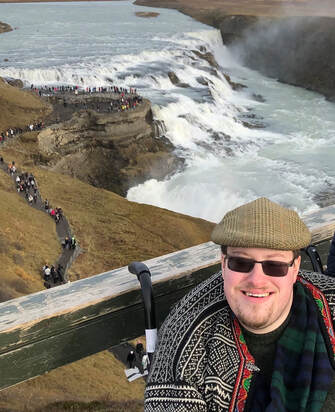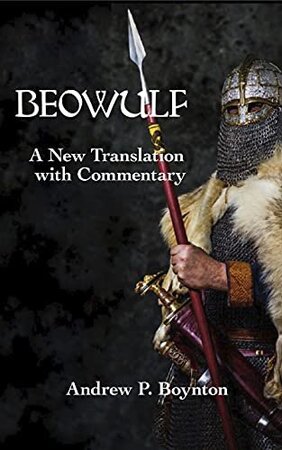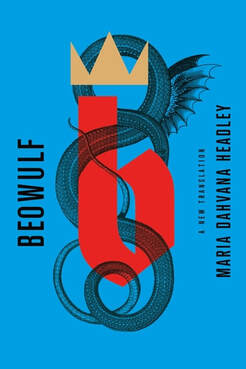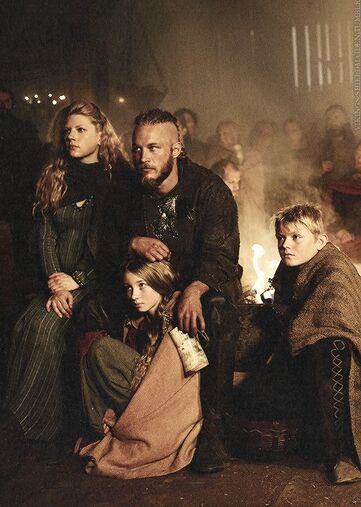|
Welcome Andrew! Thanks for taking some time to chat about writing. First, a few quick-fire questions: Who is the greatest Viking of them all? Which is the scariest monster you’ve ever read about? And what is your writing/translating beverage of choice? Technically not a Viking, (Vikings are Norse pirates) but I’m going with Leifr Eiriksson. Probably the most famous Norseman of them all, he actually was a peaceful man, the first European to set foot in the Americas (491 years before Columbus,) bringing Christianity to Greenland, and rescuing shipwreck victims. Scariest monster goes to Ungoliant from J.R.R. Tolkien’s legendarium. The Queen of the Spiders even scared Morgoth, Middle-Earth’s equivalent of Satan (who makes Sauron look like a schoolyard bully)! I also have arachnophobia, and Shelob is hard enough to watch in Return of the King, and Ungoliant is Shelob turned up to ten-thousand! I drink both tea and coffee, but I’m going to go with tea. Especially a P.G. Tips builder’s brew! "Scariest monster goes to Ungoliant from J.R.R. Tolkien’s legendarium." We both share a love and passion for Viking history, particularly the epics such as Beowulf. What drew you to study these texts and, in particular, to explore them through your own translations? I first got interested in history at age four because of Indiana Jones. I wanted to be an archeologist, so borrowed all kinds of books on ancient cultures, especially on ancient Egypt. A few years later, my focus shifted to medieval history. Later, I found out that Tolkien specifically based his works on Anglo-Saxon and Norse cultures, so my studies soon began to focus on the early Middle Ages. When I was 9, I was diagnosed with Friedrich’s Ataxia, a rare genetic disorder, similar to Muscular Dystrophy, and my pursuits became more and more academic, and less archeological. "Later, I found out that Tolkien specifically based his works on Anglo-Saxon and Norse cultures, so my studies soon began to focus on the early Middle Ages." Several years ago, I took a course on Old English from Michael Drout at Signum University (you can take the class as an Anytime Audit). At the end of the course, Professor Drout suggested we read Beowulf in Old English to become better acquainted with the language. Rather than simply read it, I decided to translate it into modern English and write an extensive commentary. Congratulations are in order for the publication of your new translation of Beowulf! Talk us through the journey of exploring this famous text and rendering it in this new translation. What are you hoping that readers take away from reading this story in this fresh light? For the original text I used a book called Klaeber’s Beowulf. When coming across words I was unfamiliar with I would use the Bosworth-Toller Old English Dictionary. Sometimes I chose to go with more archaic terms because it fit the alliteration better. I used more recent scholarship and that was reflected in the way I translated some of the words or phrases, for example: a damaged word in Line 587 is typically read as “hell,” but I offer the reading “hall” which gives the line a very different context. I hope that this new translation, with its alliteration, will harken back to older translations, such as those by Francis Gummere and John Clark Hall, but will also give it the accessibility of modern translations. "I hope that this new translation, with its alliteration, will harken back to older translations, such as those by Francis Gummere and John Clark Hall, but will also give it the accessibility of modern translations." Beowulf is getting a lot of attention right now with Maria Headley’s new translation, a very modern take on the tale, which was released a short while back. What are your thoughts on modernizing ancient texts like Beowulf and why is it important that these stories continue to be told today? While I don’t mind modernization of ancient texts, I actually had a much different intention for my translation. I feel that many recent translations modernize it so much, that it loses much of its beauty. I understand that pre-modern texts can be difficult to read, (that is the main reason I provided an extensive commentary along with the translation) but often they lose their alliteration and meter, which is much of poetry’s appeal. In talking with Dr. Alison Killilea and Norse epics student Rosemary , I complained about the lack of quality film adaptations of this incredible tale. Do you have a favorite film adaptation of Beowulf or do you have any ideas as to why it has been so hard to capture on the silver screen? My favorite movie adaption of Beowulf has to be The Thirteenth Warrior. Based on Michael Crichton’s novel Eaters of the Dead, it’s not a straightforward Beowulf adaption. It follows an Arab, Ahmad ibn Fadlan (portrayed by Antonio Banderas,) who gets caught up in an adventure with a band of Vikings, led by a warrior called Buliwyf (portrayed by Vladimir Kulich.) If you are familiar with Viking history, you may recognize the name ibn Fadlan; he was an ambassador from Baghdad, who gave an eyewitness account of a Viking ship cremation on the River Volga. Crichton wanted to show a possible historical basis for Beowulf, so he was trying to give a more natural rather than supernatural explanation for the monsters in the story. There are some anachronisms (such as Buliwyf wearing plate armor in one scene) and other inaccuracies, but the movie is well written. While not a perfect adaptation, it is probably the most entertaining adaptation I’ve seen. "My favorite movie adaption of Beowulf has to be The Thirteenth Warrior." As an author of fiction set in a Viking-like world, I often find myself challenging tropes associated with Vikings in popular culture. What false assumptions about Vikings or Germanic culture do you hope to address through your work with these ancient texts? A lot of popular culture portrays Vikings or Germanic people as people who would only raid and plunder, but I hope that with my different works people will appreciate that Vikings had their own culture and that they even had deep thoughts. When you take the time to study their culture and way of life, barbarian is no longer an adequate way to describe them. Can you give us a sneak peek of what your next major project will be? Any hints or perhaps a little snippet to get readers excited? My next big project is a trilogy of historical fantasy novels called Guthbrand’s Saga. I am hoping to have these novels traditionally published, so if you’re an agent or know of someone who is, feel free to contact me! The first book is completed and I am currently working on the second book. "My next big project is a trilogy of historical fantasy novels called Guthbrand’s Saga." The books are set in early 6th Century Norway, and are prequels to Beowulf. Book 1 is called Troll Bane. The story opens with Trolls raiding farmsteads bordering the wilds of Jötunheim. A jarl named Guthbrand and his small warband set out to hunt them down, but the closer they draw to a battle Guthbrand knows they can't win, his men's lives weigh heavy on him. Guthbrand’s Saga has characters and creatures from Norse mythology and legendary sagas. Characters share songs and folktales inspired by Old Norse sources. I paid special attention to surrounding this fantasy-infused story with historically accurate details and placing it in precise geographical locations so that you can even follow the party’s journey on a modern day map. I actually provide a map with the Old Norse place names. Like so many fantasy authors, I have been greatly inspired by the works of J.R.R. Tolkien. Like him, I have tried to create an expansive world inhabited by people and creatures with their own rich cultures, languages and history. "I paid special attention to surrounding this fantasy-infused story with historically accurate details and placing it in precise geographical locations so that you can even follow the party’s journey on a modern day map. I actually provide a map with the Old Norse place names."
0 Comments
Leave a Reply. |
AuthorJoshua Gillingham is an author, editor, and game designer from Vancouver Island, Canada. Archives
April 2022
Categories
All
|





 RSS Feed
RSS Feed
